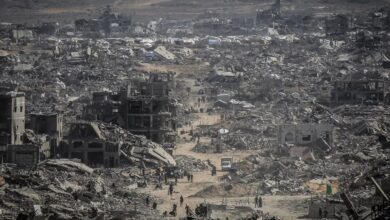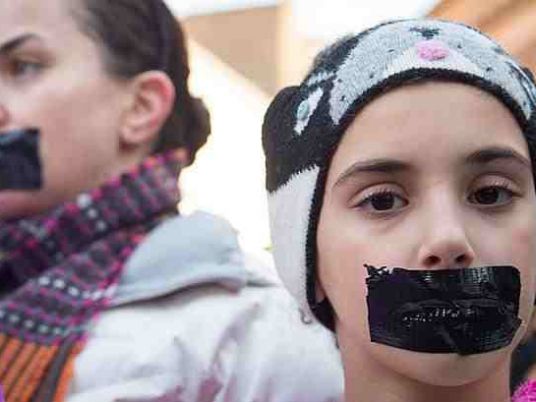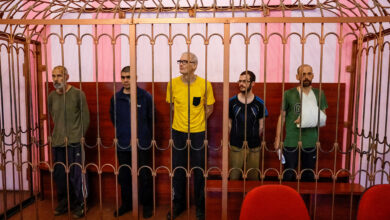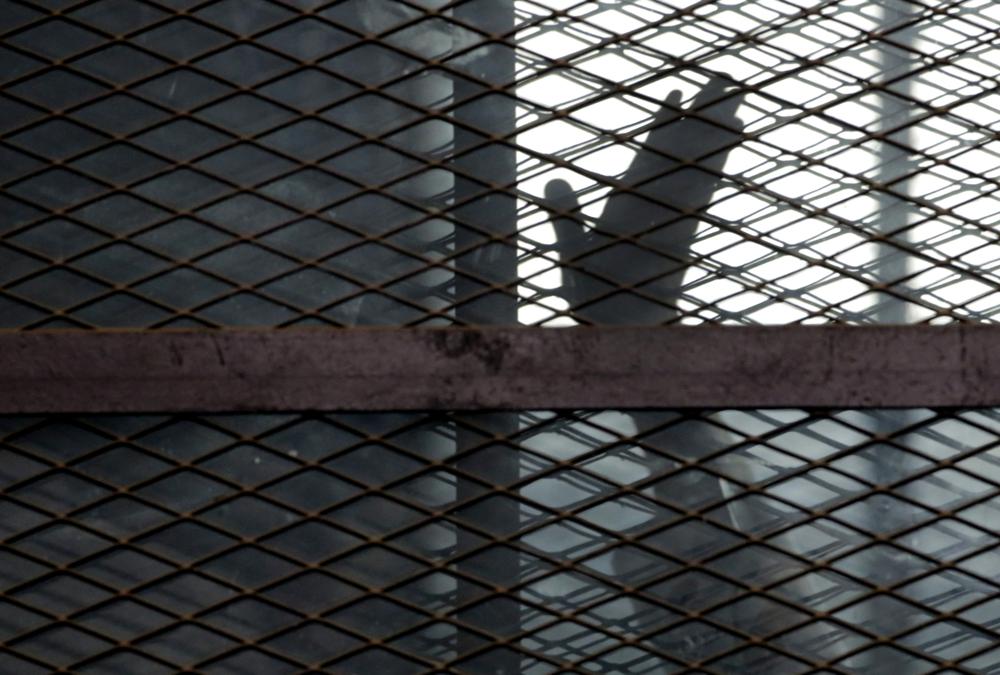In a statement issued on Wednesday evening to President-elect Mohamed Morsy, detainees arrested during the Abbasseya violence called on Egypt's new leader to issue general amnesty for all military detainees and prisoners who had been arrested since the 25 January revolution.
They also demanded the immediate release of all detainees in political and criminal cases related to sit-ins and protests that followed the 18-day uprising that led to the toppling of Hosni Mubarak.
The Abbasseya detainees were arrested following clashes in early May between soldiers and protesters who staged a sit-in by the Defense Ministry after the disqualification of presidential candidate Hazem Salah Abu Ismail from the race.
The detainees have been staging a hunger strike for over 20 days.
They also asked Morsy to give amnesty to the 8 April officers, a group of 22 soldiers who joined a protest against the ruling military council in Tahrir in April 2011.
At a meeting with some chief editors of Egyptian newspapers on Thursday, Morsy said that he is studying the issue of military detainees. When Al-Badeel website editor Khaled al-Balshy asked him about his position on military trials, Morsy said he was told that most of those on trial are thugs, but that the issue is being investigated.
Legal experts debate whether or not Morsy has the authority to grant amnesty. Lawyers Syndicate deputy head Mohamed al-Damati, a well-known human rights activist, said that Morsy cannot grant amnesty because he does not have legislative authority. The Supreme Council of the Armed Forces, which is currently acting as the legislative branch under the supplement to the Constitutional Declaration, is the only party that can grant amnesty, he explained.
Damati said that according to Articles 73, 74 and 75 of the Penalties and Procedures Law on amnesty, the president can grant a pardon to individuals for a specific crime without passing a law, but this is different from granting amnesty to a number of defendants in several cases.
However, according to Ahmed Ragheb, the director of the Hisham Mubarak Law Center, under Article 43 of the Military Justice Code the president can grant a pardon to defendants. He went on to say that, “Using the Constitutional Declaration as an excuse is wrong. The declaration prevents the president from declaring war or appointing military commanders, but he retains all his powers and he can grant amnesty with a presidential decree, as Field Marshal Hussein Tantawi previously did.”
Ragheb said the amnesty decision poses a challenge to Morsy, who would have to announce that he retains the authority to release the detainees, which could put him in conflict with the military council.
In their statement, the detainees said, “Although the policies the Muslim Brotherhood adopted toward the revolution over the last year and a half caused divisions in the revolutionary front which made it vulnerable to the military council’s assaults, Morsy cannot turn a blind eye as thousands of innocent youth remain behind bars because of military trials.”
A rift has been growing between revolutionary movements and the Muslim Brotherhood, as the former charges the latter with prioritizing its own political interests over the goals of the revolution.
“One of the first gains of the revolution was the release of political detainees, and the Brothers were the first among them. Will the Brothers today, now that they are in power, release detainees incarcerated by the military?” asked activist Salma Said on her Facebook account.
Edited translation from Al-Masry Al-Youm




